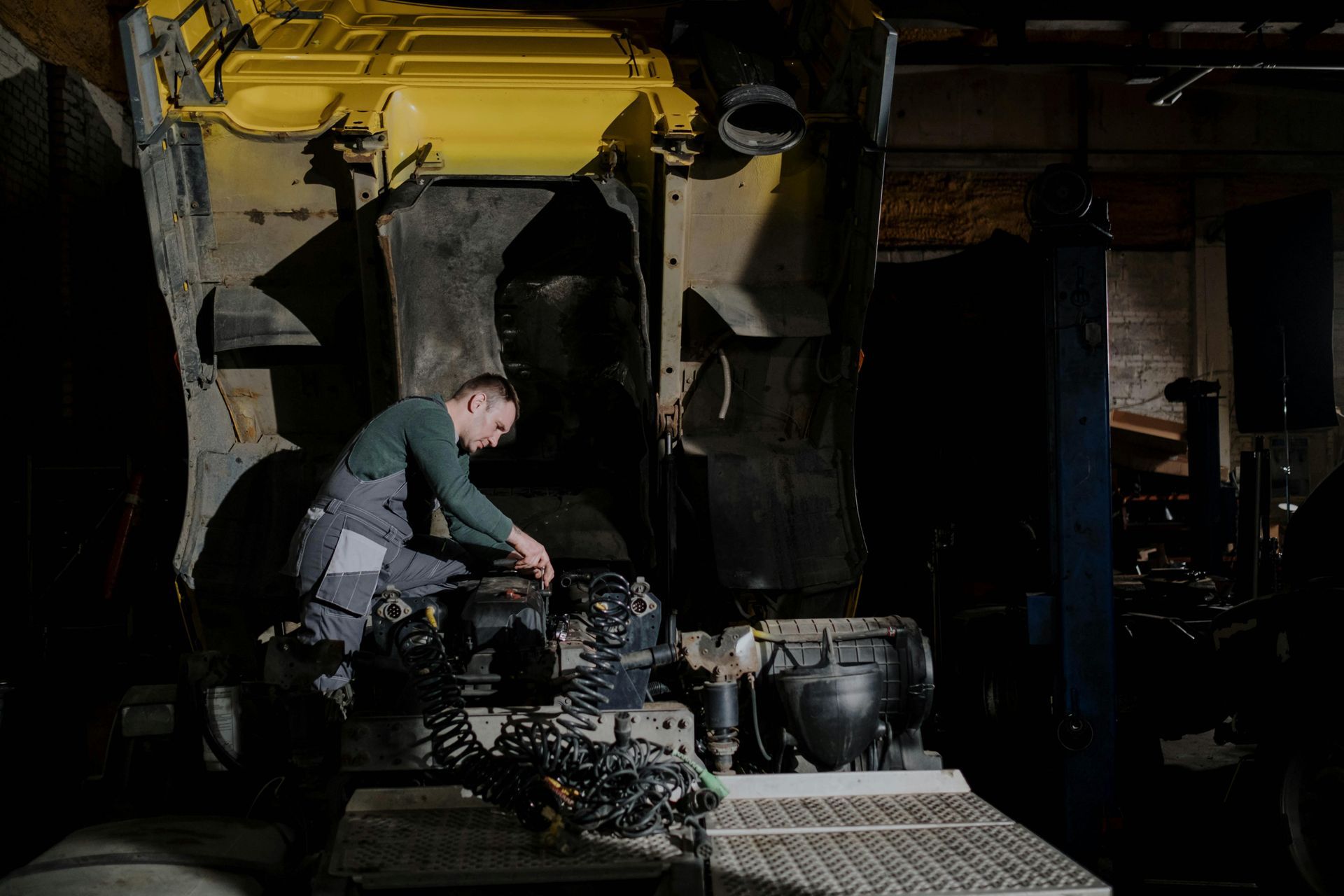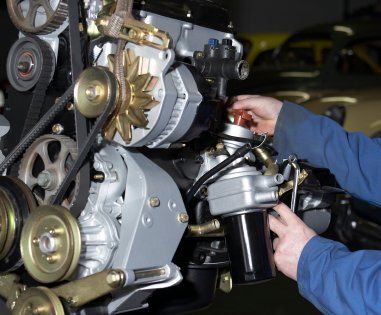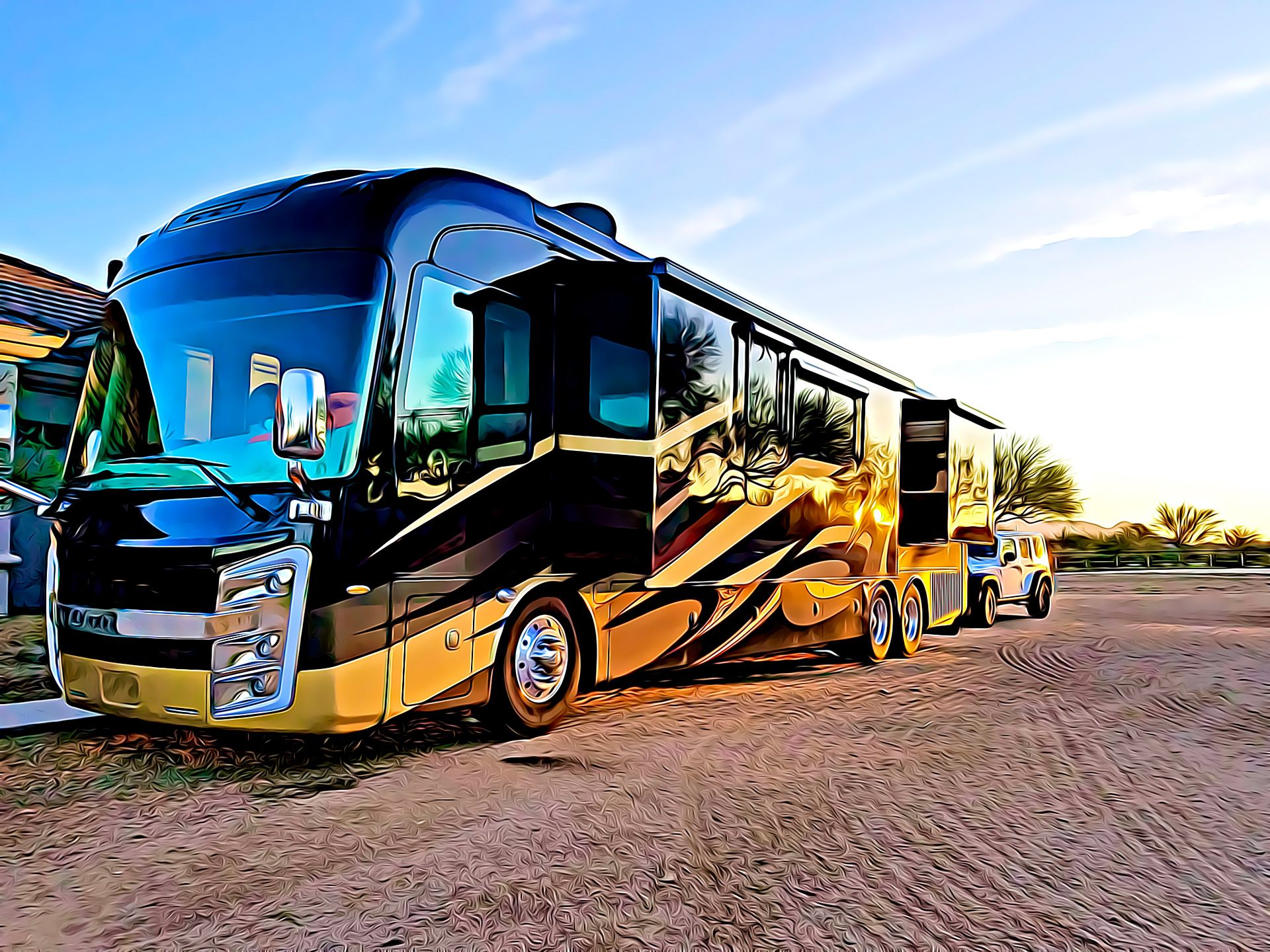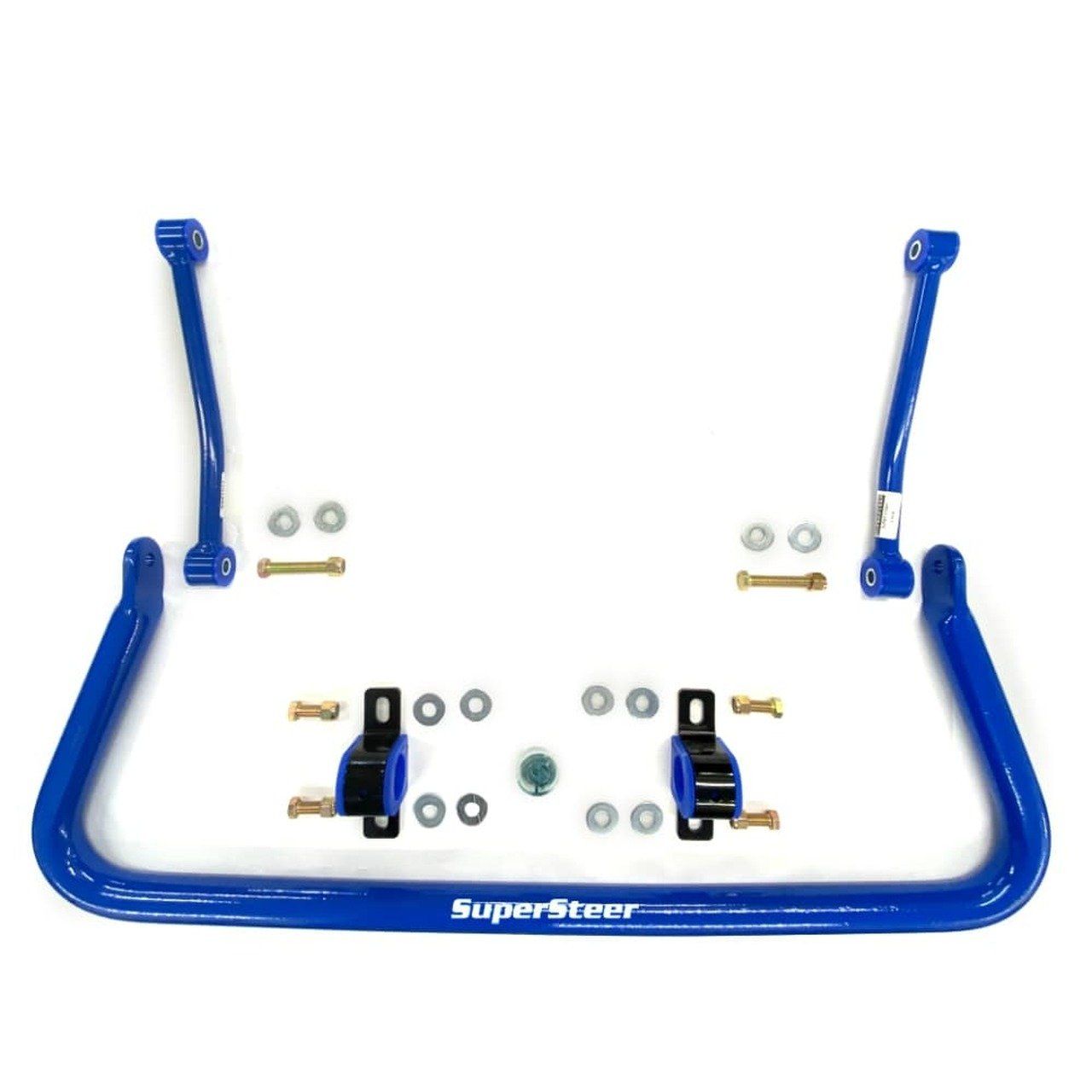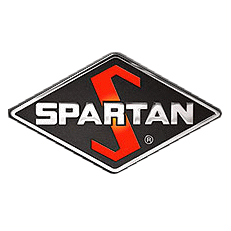Make Your RV Better Than Ever with These Great Upgrades
Mainline Team • March 19, 2024
Your RV is truly your home away from home - or maybe it's even your home - and you want it to be the best that it can be. Mainline RV & Truck Service
proudly offers a wide variety of upgrades that can improve many aspects of your RV. As the official distributor for Super Steer products east of the Mississippi, we can upgrade your RV with the very best in aftermarket parts, giving you a more comfortable and functional ride.
RV generators provide power when you are camping or in locations without electrical hookups. Having a generator allows you to run appliances and electronics when shore power is not available. Here’s how to select the right portable generator for your RV and how to find the best RV service and repair shop.
Three Great Super Steer RV Upgrades
1 - RV Suspension Upgrade
Easily the most popular type of upgrade we handle is RV suspension upgrades. Most RVs come with suspension which is fine, but when you're spending hours in your RV on every drive, you want a ride that is as comfortable as possible.
2 - Trailer Running Gear
3 - Sliding cargo trays
Chances are, you have wasted space in your RV. Maybe there's some crawlspace in the front which is hard to reach or just extra headroom which isn't being used. Sliding cargo trays turn that wasted space into storage instead! You get quick and easy access to your belongings, or they can be a great way to keep more clothes and other essentials on hand.
Do RVs Use Special Generators?
RVs can use standard portable gasoline generators that you can buy at hardware and big box stores. They do not require special RV-only generators. The generator needs to be the proper wattage to handle the electrical load of your RV. Generators for RVs come in two common sizes - 30 amp and 50 amp.
Determining Size to Run 30-Amp RV with Generator
For a 30 amp RV, you need a generator rated at least 2800-3200 watts. The 30 amp rating refers to the current, not the wattage. To run a 15,000 BTU air conditioner and another appliance, you would need at least 3500 watts. A 30 amp RV can utilize a 30 amp or 50 amp generator.
Determining Size to Run 50-Amp RV with Generator
To power a 50 amp RV, look for a generator rated 4000-5000 watts. This capacity can run a 30 amp RV as well. The 50 amp rating on an RV refers to the incoming power capacity, so you need more watts from the generator to meet the electrical demand.
Factors to Consider When Buying an RV Generator
When selecting a generator, consider:
● Wattage rating - Match to RV electrical requirements
● Fuel type - Gasoline or diesel, and tank size
● Noise level - Look for quieter models around 60 dB
● Portability - Ease of moving and storing when not in use
● Budget - Generator prices range widely, shop sales for deals
Power Supply Requirements for RVs
Here are typical appliance loads for RVs:
● 15,000 BTU AC - 3500-5000 watts
● Microwave - 1000-1500 watts
● Refrigerator - 500-1000 watts
● Coffee Maker - 600-1200 watts
● TV & Lights - 500 watts
● Electric Hot Water Heater - 1200-1500 watts
Add up appliances used at the same time to determine the needed generator wattage.
RVs can use standard portable gasoline generators that you can buy at hardware and big box stores. They do not require special RV-only generators. The generator needs to be the proper wattage to handle the electrical load of your RV. Generators for RVs come in two common sizes - 30 amp and 50 amp.
Determining Size to Run 30-Amp RV with Generator
For a 30 amp RV, you need a generator rated at least 2800-3200 watts. The 30 amp rating refers to the current, not the wattage. To run a 15,000 BTU air conditioner and another appliance, you would need at least 3500 watts. A 30 amp RV can utilize a 30 amp or 50 amp generator.
Determining Size to Run 50-Amp RV with Generator
To power a 50 amp RV, look for a generator rated 4000-5000 watts. This capacity can run a 30 amp RV as well. The 50 amp rating on an RV refers to the incoming power capacity, so you need more watts from the generator to meet the electrical demand.
Factors to Consider When Buying an RV Generator
When selecting a generator, consider:
● Wattage rating - Match to RV electrical requirements
● Fuel type - Gasoline or diesel, and tank size
● Noise level - Look for quieter models around 60 dB
● Portability - Ease of moving and storing when not in use
● Budget - Generator prices range widely, shop sales for deals
Power Supply Requirements for RVs
Here are typical appliance loads for RVs:
● 15,000 BTU AC - 3500-5000 watts
● Microwave - 1000-1500 watts
● Refrigerator - 500-1000 watts
● Coffee Maker - 600-1200 watts
● TV & Lights - 500 watts
● Electric Hot Water Heater - 1200-1500 watts
Add up appliances used at the same time to determine the needed generator wattage.
Reliable RV Service & Repair
Whatever RV services, repair,
or upgrades you want, Mainline RV & Truck Service has them at reasonable prices, backed by manufacturer's warranties.
Contact Mainline RV & Truck Service for RV Service and Repair
For help determining the right generator for your RV or any service needs, contact our experts at Mainline RV & Truck Service. We provide RV repair and service for generators and more. Click here to schedule a service appointment.
For help determining the right generator for your RV or any service needs, contact our experts at Mainline RV & Truck Service. We provide RV repair and service for generators and more. Click here to schedule a service appointment.


